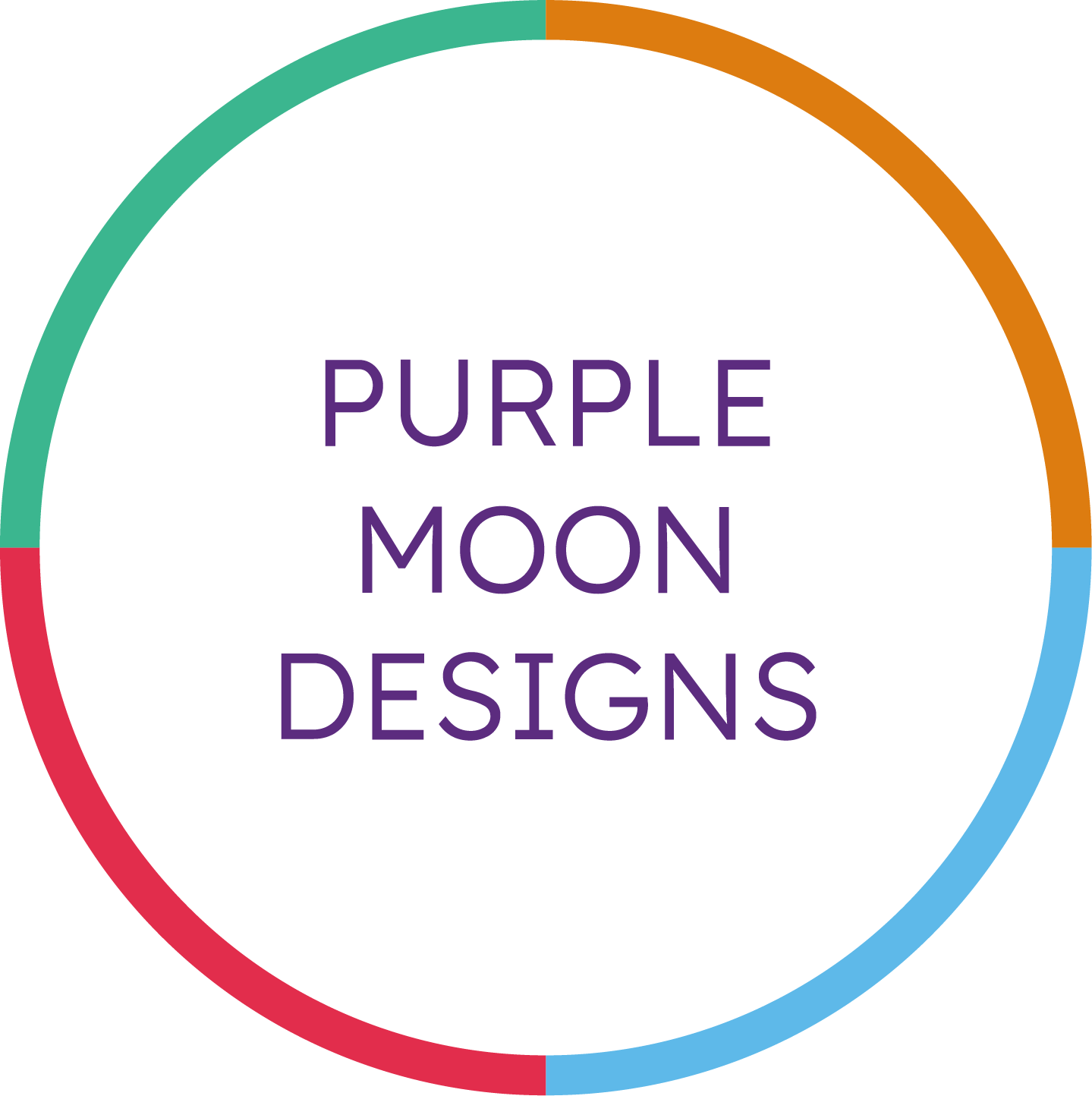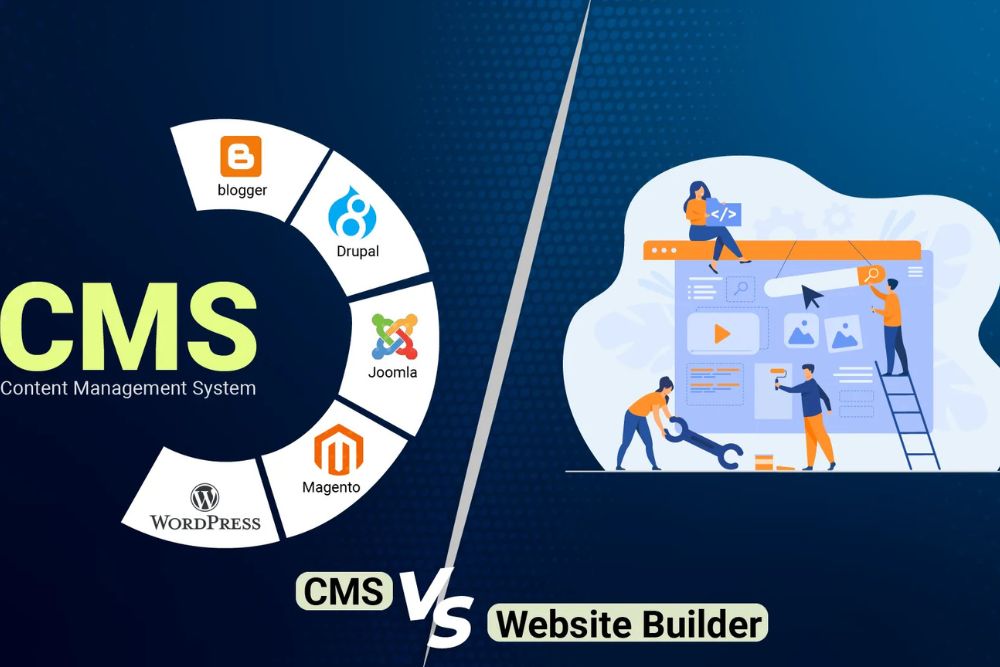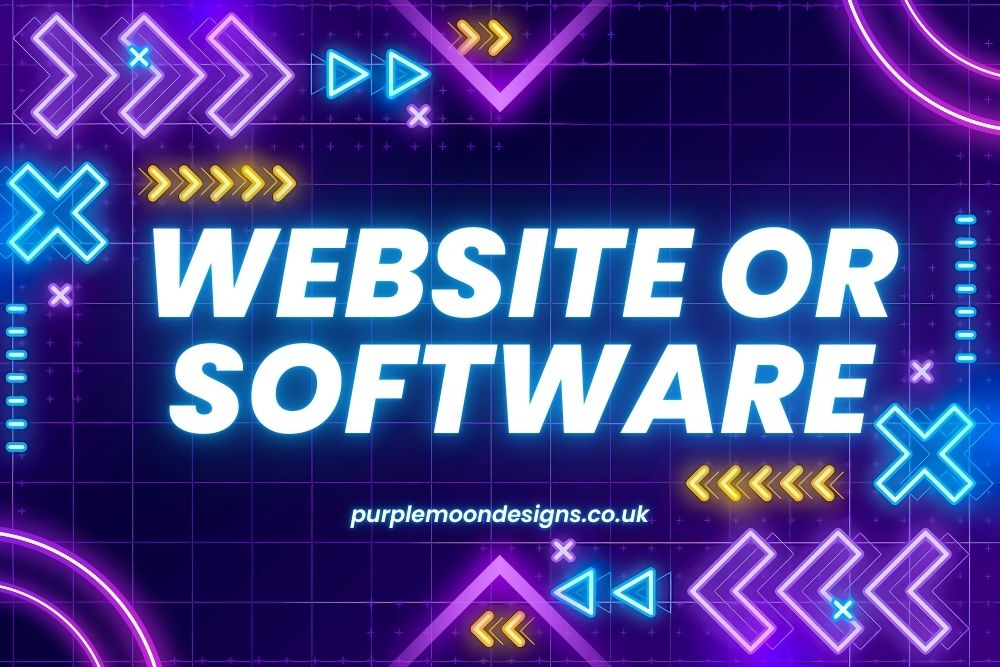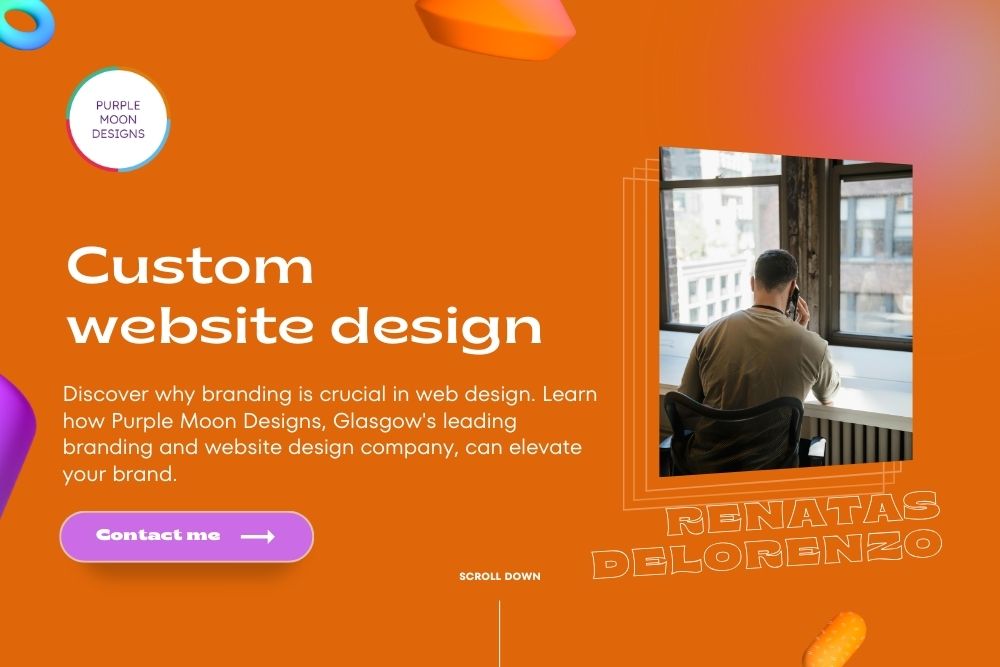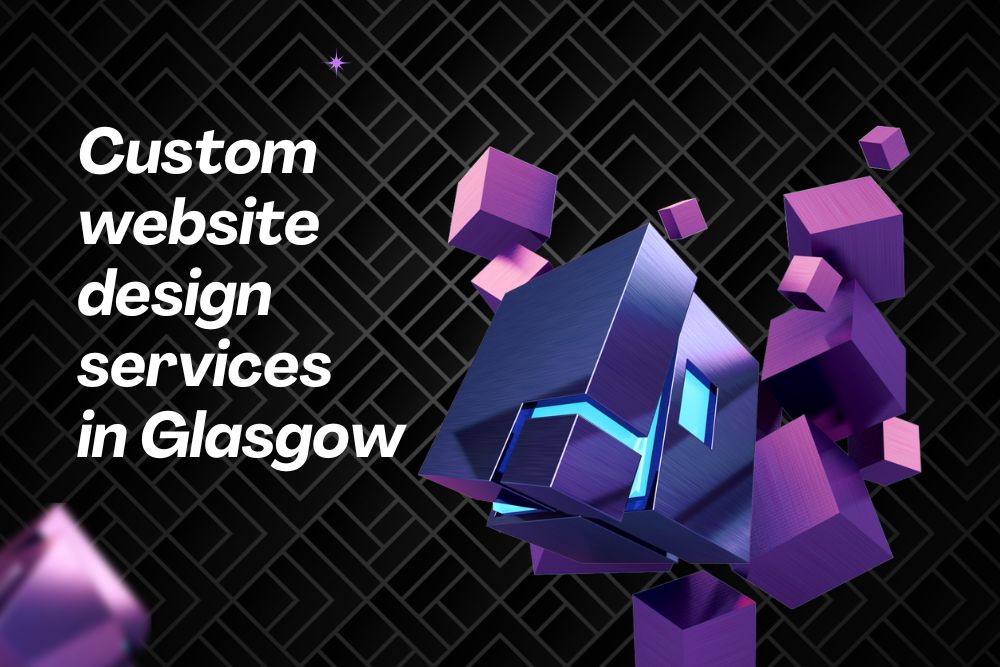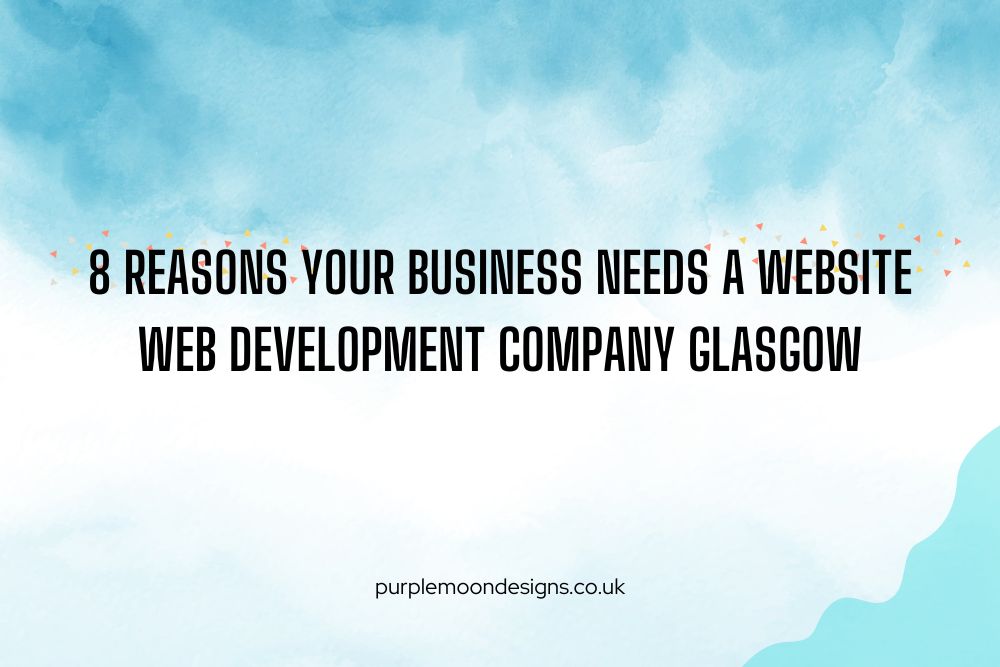Tl;dr if you’re doing a website design yourself and looking after it – choose a website builder. If you’re hiring a good development team choose Content Management System. As long as the dev team is good at what they do.
Creating a website is crucial, but the tools you use can have a big influence on what success can you achieve online. Website builders and Content Management Systems (CMSs) are two well-liked choices. Both have their strengths and weaknesses. Our quick guide will explain what’s the best for you.
We’ve been doing this since 2014 and helping businesses make informed decisions to build websites that reflect their brand identity and achieve their goals. Let’s compare CMSs and website builders to see which solution fits your needs best. A successful website should ensure equitable access and usability for diverse user groups, emphasizing accessibility alongside layout and navigation.
What Are CMSs and Website Builders?
While CMSs and website builders are often confused, they serve different purposes and cater to varying levels of technical expertise.
Content Management Systems (CMSs):
Focus on managing website content, offering extensive flexibility for design and functionality. It’s usually built around your website and how it works so you could manage aspects of it easier like sales, content changes, enquiries etc.
Website Builders:
Ease of use, providing tools to create visually appealing websites without technical expertise. It’s less flexible and bulky. But it’s unlikely that anything will break as you do. It does come at monthly fee though. Users can easily customize their website’s color palette to align with their branding and enhance the overall aesthetic appeal.
What is a CMS for website design?
CMS software allows users to create, manage, and modify digital content on a website without coding. However, CMS software often requires knowledge of programming languages such as HTML and JavaScript to fully customize and develop a website. Typically, a CMS runs on a web server and stores content in a database. It links your website’s front-end of what people see to simple editing tools for admins.
Popular CMS Platforms
WordPress
The most popular solution regardless of what kind of website there is.
Joomla
Drupal
Key Features of CMS
Flexibility: Design your site using themes, plugins, or custom code. Our advice is always custom code. Less moving parts, more accurate, more you and for you.
Responsive web design is crucial in ensuring that websites created with a CMS are user-friendly and function well across various devices.
Control: Choose your hosting provider, manage backups, and maintain security settings.
Scalability: Ideal for blogs, eCommerce platforms, forums, or complex websites.
How a CMS Can Help You Create a Website
- Purchase a domain name.
- Choose a hosting provider. Some hosting providers charge you extra for CMS, they shouldn’t. Choose the one that doesn’t.
- Install the CMS (many hosts offer one-click installations).
- Select or upload a theme and customise it.
- Add plugins for additional functionality (e.g., SEO, analytics, contact forms).
- Start creating and managing content.
Creating your own website is a practical application of the skills learned in web development courses. It allows you to determine your website’s purpose, structure content, and use templates to facilitate the creation process. Customizing your domain and using website creation tools can make the process accessible and beneficial, especially for beginners.
Pros and Cons of CMS
Advantages
Customisation: Endless possibilities to run a blog, portfolio, online store or a full booking system and CRM. You’re limited only by ideas (probably skill too).
Ownership: Retain control over your hosting, domain, and data.
Transferability: Easily migrate your website to another hosting provider if you require.
Disadvantages
Learning Curve: Requires immense technical knowledge to do anything worth while. If you learn, you might as well start a career out of it.
Maintenance: You’re responsible for updates, backups, and security. Most CMS systems are open source. It’s good because you get a lot of developers working world-wide, getting ideas ready, new features. But it also means the new bugs, security issues are often found and require constant updates.
Cost: While the CMS may be free, hosting, themes, and plugins can add up. But you can find free options for it all and get cheap hosting for under £100 a year.
What is a Website Builder?
Website Builders are all-in-one platforms that let users use drag-and-drop tools and pre-made templates to create a website. They are perfect for novices because they take care of hosting, security, and upkeep. This does mean you get less control, but little chatbot will be a life-saver when you run into anything unfamiliar.
High-quality images and graphics can significantly enhance the visual appeal of a website created using a website builder.
Definition and Explanation of Website Builders
Website builders are online platforms that enable users to create and design their own websites without requiring extensive coding or technical expertise. These platforms provide a range of tools, templates, and features that make it easy to build a website, even for those with little to no experience in web design. Website builders are designed to be user-friendly, allowing users to drag and drop elements, customize templates, and add content to create a professional-looking website. Whether you’re looking to create a personal blog, a portfolio, or a small business site, website builders offer an accessible way to get your web presence up and running quickly.
Popular Website Builders
Squarespace
Wix
Shopify
Weebly
How a Website Builder Can Help You Create a Website
Sign up for an account and choose a subscription plan.
Pick a template and customise it.
Add your domain (or purchase one through the platform).
Start adding content using user-friendly tools.
Integrate high-quality, customizable images to enhance the visual appeal of your website. Additionally, use image optimization techniques to improve loading times and overall website performance.
Pros and Cons of Website Builders
Advantages
Ease of Use: Intuitive interfaces make it simple for beginners.
Quick Setup: Launch your site in hours, not days.
All-in-One Solution: Hosting, backups, and security are included.
Disadvantages
Limited Flexibility: Customisation options are restricted.
Vendor Lock-In: Migrating your website to another platform can be difficult or impossible.
Recurring Costs: Monthly fees can increase, especially for advanced features.
Key Differences Between Website Builders and CMS
While both website builders and Content Management Systems (CMS) are used to create and manage websites, there are key differences between the two. A CMS is a more advanced platform that requires technical expertise and is designed for complex websites with multiple pages, features, and functionalities. Website builders, on the other hand, are designed for simplicity and ease of use, making them ideal for small businesses, individuals, and those who want to create a website quickly and easily. If you’re looking to build a website without diving into the technical details, a website builder might be the perfect solution for you.
Customization and Flexibility
Website builders offer a range of customization options, including templates, drag-and-drop editors, and styling tools. These features allow users to personalize their website and make it unique to their brand and business identity. However, the level of customization and flexibility can vary depending on the website builder, with some offering more advanced features and others limiting the level of customization. While you might not have the same level of control as with a CMS, website builders still provide ample tools to create a visually appealing and functional site that aligns with your business goals.
Scalability and Performance
Website builders are designed to be scalable, allowing users to grow their website as their business grows. However, the performance of a website built with a website builder can depend on various factors, including the platform’s infrastructure, the user’s design choices, and the amount of traffic the website receives. Some website builders offer more advanced performance features, such as image optimization and caching, to help improve the speed and performance of the website. As your business expands, these features can ensure that your site remains responsive and efficient, providing a seamless experience for your visitors.
Which Should You Choose?
Your decision depends on your specific needs, goals, and technical expertise.
Choose a CMS if:
It would help if you had extensive customisation and scalability.
You’re building a content-heavy or feature-rich website.
You’re comfortable with (or can hire for) technical maintenance.
You’re looking for control and you have a niche idea in your mind.
Choose a Website Builder if:
You’re a beginner looking for a quick and hassle-free setup.
You’re creating a small website like a portfolio or personal blog.
You prefer an all-in-one solution with minimal technical involvement.
Why Purple Moon Designs Recommends CMSs
We advocate for CMSs like WordPress for their flexibility and scalability. A CMS offers unparalleled control and functionality, whether you’re building a Blog, an eCommerce store, or a custom website. We provide professional design and development services to ensure your CMS-based website meets your unique needs. We build CMS websites into systems that help you run and promote your business.
Final Thoughts
Both CMSs and website builders are powerful tools for creating websites. While CMSs excel in flexibility and scalability, website builders shine in ease of use and simplicity. The right choice depends on your project requirements, technical skills, and budget. But mot important part of it all is if you’re going the DIY way or hiring professional team. Because no professional will offer a website builder solutions. And good dev team can make the CMS solution smooth, secure, feature rich and unique to your business.
If you’re unsure which to choose, contact Purple Moon Designs today. Our team of experts will guide you through the process and create a stunning, user-friendly website that elevates your brand.
